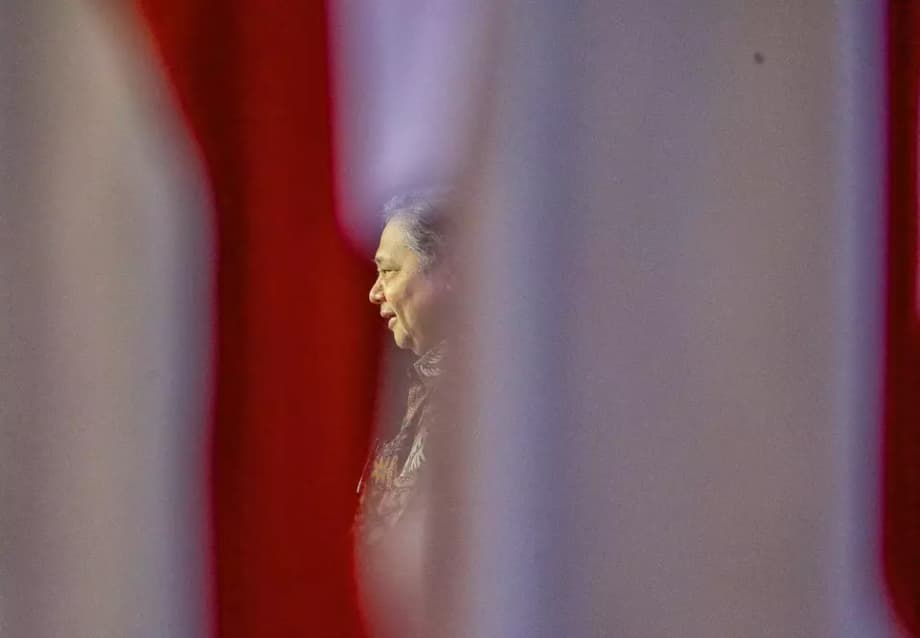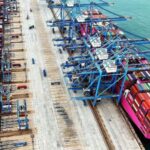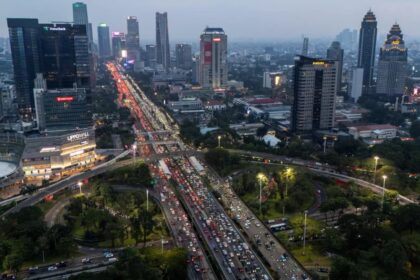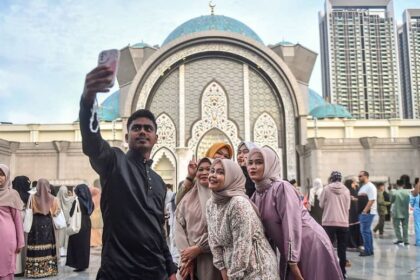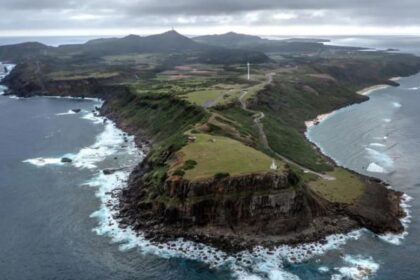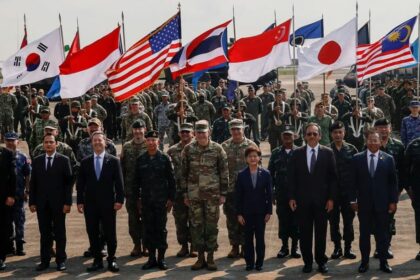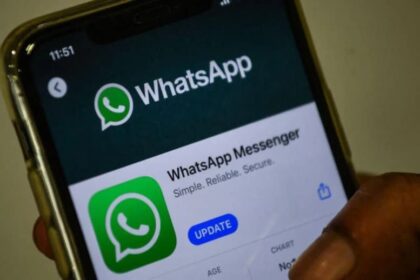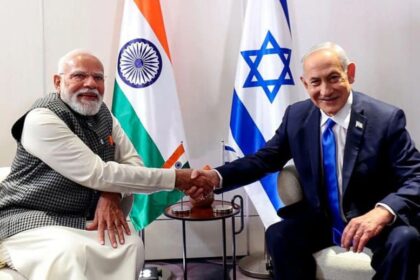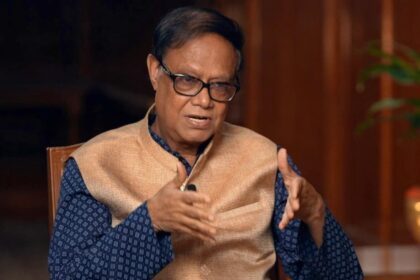What joining the BRICS bank would mean for Indonesia
Indonesia is moving to become a shareholder of the New Development Bank, the multilateral lender created by BRICS members to finance infrastructure and sustainable projects. The government has set aside funds to purchase shares and make the required paid in capital contributions. Chief Economic Affairs Minister Airlangga Hartarto said the capital payment has been approved on the Indonesian side, while the final accession timeline remains open. Jakarta aims to join as soon as possible.
- What joining the BRICS bank would mean for Indonesia
- How the New Development Bank works
- Why Jakarta wants in now
- What projects could be funded first
- The money question: capital, installments and the state budget
- How membership could reshape Indonesia’s financial ties
- What challenges to expect
- Regional ripple effects in Southeast Asia
- What happens next in the accession process
- Key Points
The step follows Indonesia’s full entry into the expanded BRICS group in January. President Prabowo Subianto announced the decision to join the New Development Bank, known as NDB, during a meeting in Jakarta with the bank’s president, former Brazilian leader Dilma Rousseff. The NDB focuses on infrastructure, clean energy and other development priorities that align with Indonesia’s needs. It has an authorized capital of 100 billion dollars and has approved about 39 billion dollars in financing for 120 projects to date.
Indonesia’s leadership has framed NDB membership as part of a broader economic transformation. The government has presented a large project pipeline for potential collaboration, including proposals in transport, renewable energy, digital connectivity, urban services and social programs. Officials have spoken of dozens of candidate projects, with working lists citing 77 proposals for the bank’s consideration.
Joining the NDB would deepen Indonesia’s financial ties with major emerging economies across Asia, Africa and Latin America. It would also add a new channel of long term, development focused financing that can complement existing relationships with the Asian Development Bank and the World Bank. For Indonesia’s state owned enterprises and regional governments, access to another multilateral lender could widen funding options for complex, capital intensive projects.
How the New Development Bank works
The NDB was set up in 2015 by Brazil, Russia, India, China and South Africa to mobilize resources for infrastructure and sustainable development. It describes itself as a bank from the Global South that supports member strategies rather than imposing a single policy template. Membership is open to United Nations countries, provided BRICS members retain a majority stake. No member holds veto power.
At its launch the bank’s founders subscribed 50 billion dollars in capital, split equally. Each founding member initially held 18.76 percent of the shares. Since then, the bank has admitted new members including Bangladesh, the United Arab Emirates, Egypt and Algeria, with share subscriptions that are smaller than those of the founders and tailored to each economy’s capacity.
Capital and membership
NDB finance is backed by a mix of paid in and callable capital. Paid in capital is the money members actually transfer to the bank. Callable capital is a commitment that can be drawn if needed to protect the bank’s obligations. To ease the budget impact, the NDB allows members to make their paid in contributions over several years. Indonesian officials say the bank provides the option to pay in seven installments. Bangladesh and the UAE have already completed their first three installments, while Egypt has made its first transfer. The UAE participates as a non borrowing member.
Indonesia has not disclosed the size of its initial subscription or the profile of installments. New members elsewhere have subscribed between roughly 1 percent and 2 percent of the bank’s capital, indicating that Jakarta’s paid in schedule is likely to be manageable within its medium term fiscal framework. The step still requires careful budgeting since paid in capital is a real outlay and not only a guarantee.
Lending focus and track record
The NDB lends to sovereign and sub sovereign borrowers, as well as state owned enterprises, for projects such as transport corridors, water and sanitation, power generation and grids, and urban modernization. It has financed a large share of early projects in the founding economies. Loans for newer members are possible, but the approval track has historically moved more slowly outside the original five. The bank has issued green bonds and has supported lending in local currencies in some markets, a tool that can reduce exchange rate risk for borrowers.
Why Jakarta wants in now
President Prabowo Subianto has tied NDB membership to his growth agenda, which centers on logistics upgrades, food security, energy transition and human capital. He presented a broad slate of proposals to the bank during meetings in Jakarta. He told reporters that joining would help propel Indonesia’s development momentum and attract cooperation across priority sectors.
Introducing his vision at the Presidential Palace, Prabowo underlined the role of the bank in speeding up structural change. He said membership would support Indonesia’s push to raise productivity, connect its islands more efficiently and expand access to clean energy.
President Prabowo Subianto said the goal is acceleration. He stressed that NDB partnership fits the national plan to build infrastructure and improve social programs.
Joining NDB as a member would help Indonesia accelerate its economic transformation.
For the bank’s leadership, Indonesia brings scale and a clear policy framework. NDB President Dilma Rousseff highlighted Indonesia’s long run development strategy and its medium term plan, as well as a pipeline that ranges from logistics and digital connectivity to education, health, housing and efforts to reduce poverty and hunger.
Rousseff also emphasized the institution’s approach to working with members and the importance of respecting their choices.
It is a great honor to have Indonesia as a new member country. The NDB is a bank from the Global South, for the Global South, and respects the sovereignty of each member country, relying on their strategies and priorities.
Discussions between Indonesia and the NDB have included renewables and biodiesel, as well as technological development. The government’s list of potential projects includes a national school feeding program, improvements along the palm oil production chain and waste to energy facilities. Transport and port upgrades, toll roads, mass transit and grid modernization are expected to feature in the mix because they sit at the heart of Indonesia’s plans to lower logistics costs and raise competitiveness.
What projects could be funded first
Indonesia’s most bankable candidates fall into a few clusters that match the NDB’s mandate. Transport is a central need for an archipelago of more than 17,000 islands. Efficient shipping links, modern ports and last mile logistics can lift trade flows and reduce costs for small and medium firms. Toll road extensions, rail links and mass transit projects in urban areas can support mobility and regional growth poles.
Power and the energy transition are another cluster. Indonesia has some of the world’s largest geothermal resources and significant potential in solar and hydro. The NDB’s appetite for renewable energy and grid upgrades could fit projects that bring new capacity online and reinforce transmission. Biodiesel initiatives aligned with national energy policy may also attract attention, alongside distributed energy and battery storage pilots.
Urban services and climate resilience round out a third cluster. Water and sanitation investments, waste management and flood protection can deliver direct improvements in quality of life and productivity. The bank’s track record in those areas is growing. Projects that combine climate adaptation with job creation would match both Indonesia’s priorities and the bank’s mission.
The NDB’s willingness to consider lending in local currency is a practical advantage. Rupiah loans can reduce foreign exchange exposure for state firms and municipal borrowers, which is especially valuable for infrastructure assets with domestic revenue streams. Local currency funding also supports the development of domestic capital markets by providing a benchmark for long tenor financing.
The money question: capital, installments and the state budget
Every new NDB member purchases shares and commits capital. Paid in capital is the cash transfer made to the bank. Callable capital is a contingent commitment. Indonesia’s authorities say they have earmarked money to start the process and that the bank allows installment payments over several years. That eases pressure on the annual budget while keeping the membership path on track.
While the government has not disclosed the exact amount, experience from other new members offers a sense of scale. Countries like Bangladesh and the UAE opted for a modest initial share, roughly one to two percent of the total, with installment schedules that split paid in transfers into several tranches. Egypt has begun its payments as well. A similar path for Indonesia would be consistent with prudent fiscal management and with the bank’s intent to broaden its base without overburdening new members.
Joining also requires administrative steps, including formal accession, signature of the membership instrument, and deposit with the bank. In some cases, national legislatures review and ratify multilateral agreements. After accession, the bank’s Board of Governors approves the share allocation and the payment plan. Indonesia’s timeline will depend on how quickly those steps are completed and how fast the parties finalize the capital schedule.
How membership could reshape Indonesia’s financial ties
NDB membership diversifies Indonesia’s sources of development finance. The country already works closely with the Asian Development Bank, the World Bank and bilateral lenders. Adding the NDB provides another avenue for co financing and for projects that can be structured with more room for local priorities. The bank has signaled readiness to partner with other institutions on green and sustainable investments, which can help pull in private capital.
Membership also deepens Indonesia’s engagement with peers across the Global South. The NDB brings together large emerging markets with a shared focus on infrastructure, industrial upgrading and social inclusion. As a G20 economy, Indonesia can reinforce the bank’s voice in global forums and help shape co financing platforms that connect multilateral banks, national development institutions and private investors.
For Indonesian borrowers, the potential to access loans in rupiah and to work with a lender that tailors projects to national plans is an added draw. The NDB’s interest in logistics, energy transition and digital connectivity mirrors Indonesia’s development agenda, which increases the odds of a steady pipeline once the country is fully onboarded.
What challenges to expect
The NDB has concentrated much of its lending in its five founding members. Newer members have experienced slower movement from application to disbursement. Egypt’s first projects have taken time to reach approval even after it joined. Indonesia can expect a learning curve on both sides as teams align on safeguards, procurement rules and project preparation standards.
The bank’s portfolio is growing, but building a diversified pipeline in a new member country requires capacity for feasibility studies, environmental assessments and stakeholder engagement. Agencies and state firms will need well prepared proposals and clear governance frameworks. Strong preparation tends to speed approvals and reduce cost overruns, which matters for large infrastructure.
Macroeconomic conditions also shape outcomes. Interest rates, exchange rate trends and market appetite for NDB bond issuance affect the cost and tenor of loans. The opportunity to borrow in rupiah would mitigate currency risk, but the bank would need to raise local currency funding at scale to support that option in a sustained way.
Regional ripple effects in Southeast Asia
Indonesia is the first large ASEAN economy to join the NDB after the bank’s initial expansion beyond the founding members. Its entry could pave the way for a larger presence in Southeast Asia over time. The region’s infrastructure needs are sizable, from cross border transport corridors to energy interconnections and digital networks. If NDB activity grows in Indonesia, it may encourage neighbors to explore membership or co financing partnerships.
A stronger NDB footprint in Southeast Asia could also support supply chain resilience. Investments in ports, logistics and energy can strengthen links between Indonesia and other regional economies. Over time, the bank could consider a regional office to serve ASEAN markets, a step it has taken in other regions. Any move of that kind would depend on deal flow and member demand.
What happens next in the accession process
After a head of state announces the intent to join, the technical work begins. This includes setting the size of Indonesia’s share subscription, agreeing on the paid in and callable capital mix and drafting the accession instrument. The bank’s governors then vote on admission. A new member typically completes the process by depositing the instrument of accession and making the first paid in installment. Uruguay’s pending candidacy illustrates the sequence: it received approval but must deposit the instrument to finalize membership.
Indonesia’s economic team has signaled that the capital transfer plan is ready in principle. The government intends to move quickly through the formalities. Once the membership is in effect, Indonesian agencies and state firms can move from concept notes to full proposals under the bank’s processes. Early wins are likely to come from projects that align closely with the NDB’s priorities and Indonesia’s existing plans, which includes transport links, clean energy and urban services.
Key Points
- Indonesia is preparing paid in capital to join the BRICS backed New Development Bank and aims to complete accession as soon as possible.
- President Prabowo Subianto announced the decision after meeting NDB President Dilma Rousseff in Jakarta.
- The NDB has 100 billion dollars in authorized capital and has approved about 39 billion dollars for 120 projects, mainly in its founding economies.
- Indonesia has outlined a pipeline that includes 77 proposed projects across logistics, renewable energy, digital connectivity and social programs.
- The bank allows new members to pay capital in installments, with Indonesian officials citing a seven installment option.
- New members such as Bangladesh, the UAE and Egypt have begun their payments, with the UAE participating as a non borrowing member.
- The NDB can support local currency lending, which would help Indonesian borrowers reduce foreign exchange risk.
- Early projects are likely to target transport infrastructure, power and grid upgrades, and urban services such as water, sanitation and waste management.
- Indonesia’s entry diversifies its development finance options beyond the ADB and World Bank and strengthens South South cooperation.
- Loan approvals for newer members have historically taken longer, so project preparation and alignment with NDB standards will be critical.


